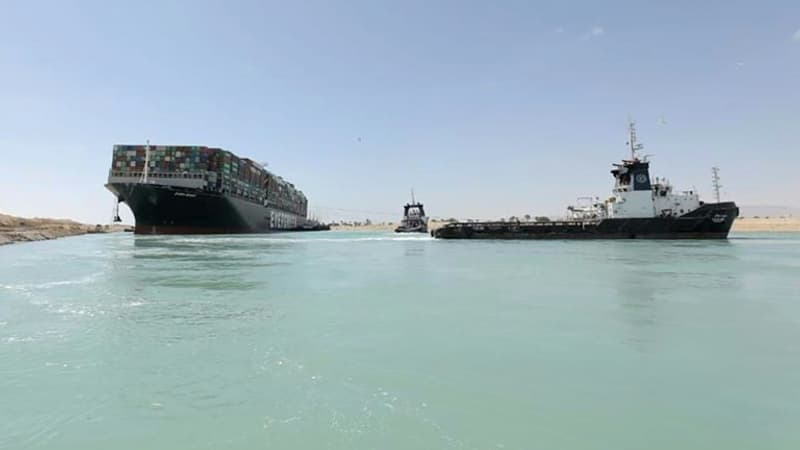Egyptian President Abdel Fattah al-Sissi announced on Monday, February 19, that revenue from the Suez Canal, one of the country’s main sources of foreign currency, had “fallen between 40 and 50%” since the beginning of the year, after attacks by the Yemeni Houthi rebels. .
Since November, the Houthis have claimed to attack ships linked to Israel or its supporters in solidarity with Palestinians in the Gaza Strip, which has been bombed incessantly since the unprecedented deadly attack by Hamas on October 7 on Israeli soil.
The Houthi attacks have led many shipowners to decide in 2024 to avoid Africa in the long term and suspend passages through the Red Sea and the Suez Canal, through which between 12 and 15% of world traffic usually passes, according to the EU.
67% drop in weekly container ship transit
“You see what is happening on our borders (…) with Gaza, you see the Suez Canal that brought Egypt almost 10 billion dollars a year, (these revenues) have fallen between 40 and 50% and Egypt must continue paying companies. and partners,” Abdel Fattah al-Sissi said at a conference with oil companies.
The immense work inaugurated in 1869 generated around $8.6 billion for Egypt in the 2022-2023 fiscal year, a windfall in a country where importers and money changers now struggle to find dollars.
In the country undergoing the worst economic crisis in its history, the channel’s revenues are monitored as closely as income from tourism and remittances from Egyptian workers abroad.
The volume of trade passing through the Suez Canal has fallen 42% in the last two months, according to the UN, concerned about the repercussions for all global trade.
And the weekly number of container ship transits fell 67% year-on-year. The decrease in tanker traffic is 18%, that of bulk cargo ships (cereals, coal, etc.) is 6% and gas transportation is paralyzed.
Source: BFM TV


